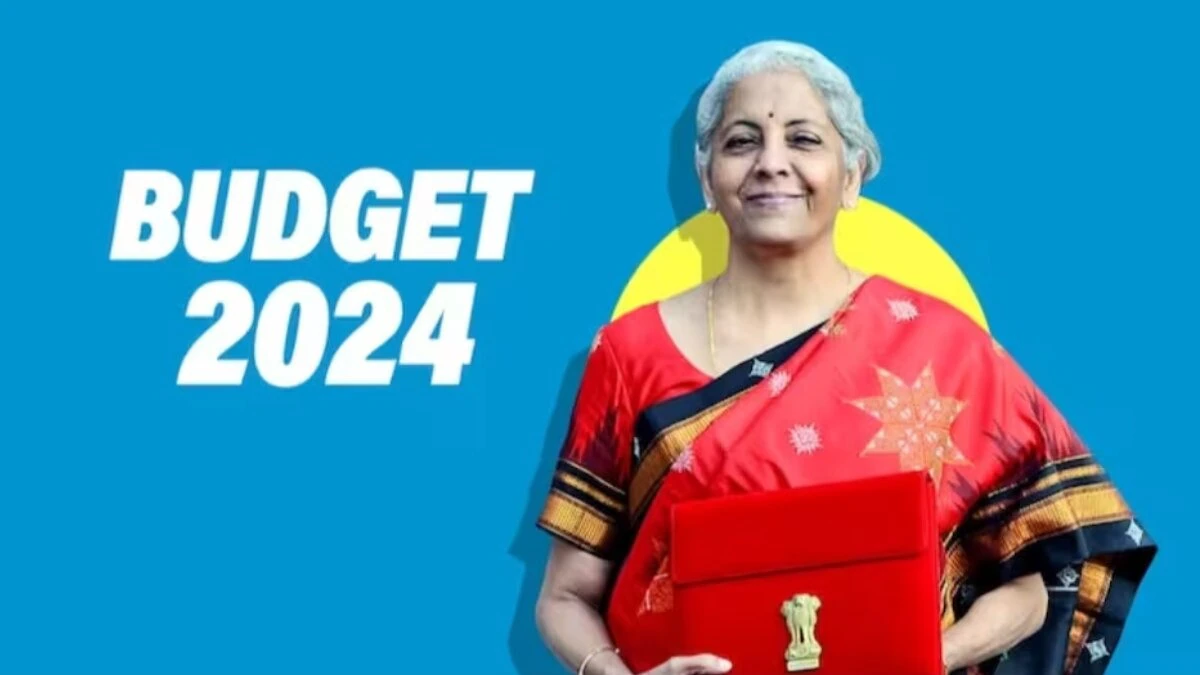
Budget 2024 expectation : Logistics sector seeks infra, economic corridor, digitalisation betterment
NEW DELHI : Ahead of the Union Budget 2024-25, First Budget of the ‘Modi 3.0’ government which is set to present by Finance Minister, Smt. Nirmala Sithraman today, July, 23rd in the Parliament, the country’s logistics sector has called for a push to infrastructure, multi-modal transport cum economic corridor development approach, and green energy and electric vehicle ecosystem. The sector has also called for investment in technology and digitisation for smooth functioning of the sector.
Apart from measures to facilitate investments in the sector, players have also called for expediting the existing policy measures announced for the sector.

Mr. Vineet Agarwal, Managing Director, Transport Corporation of India (TCI) stated “We are optimistic about the government’s commitment to bolstering the logistics sector. An emphasis on infrastructure development, streamlined regulations, upskilling programs for the workforce and enhanced investment in technology will be pivotal in driving efficiency and sustainability in our industry. We look forward to policies that support innovation, facilitate ease of doing business, and create a robust framework for the growth of the logistics and transportation sector,”

Mr. Rampraveen Swaminathan, MD and CEO, Mahindra Logistics stated “Building on the interim budget’s foundation, we foresee this budget to significantly boost infrastructure investments, particularly in multi-modal transport and advanced warehousing. We expect a continued emphasis on green energy and strong EV infrastructure, accelerating our journey towards green logistics. Focus on automation and digitisation across the logistics value chain will be crucial to achieving higher efficiencies and reduced costs,”
“Expediting the National Logistics Policy and projects like ONDC, ULIP and Direct freight corridor is essential for creating a unified logistics ecosystem. Addressing skill development in the sector is vital to meet the demands of modern logistics. Establishing a comprehensive regulatory framework to support the gig economy and formalise last-mile delivery employment should remain a priority in budget allocation. These initiatives will help establish a fair, inclusive, and innovative logistics landscape,” Mr. Swaminathan adds.

Mr. Harpreet Singh Malhotra, CMD, Tiger Logistics stated “The sector representatives also emphasised the need to undertake an economic corridor development approach to logistics in the country. “Building on the positive steps taken in the interim budget, it is essential to prioritise a well-distributed allocation for the logistics sector in the upcoming budget,”
“This should ensure continued transformation across all aspects. Infrastructure development, dedicated economic/freight corridors, and continued investment in seamless customs processes and multimodality are all crucial for a more efficient and integrated logistics network. Such a comprehensive approach will be instrumental in propelling the overall transformation of the sector and India’s economic growth,” Mr. Malhotra adds.

Mr. Gayomard Driver – Executive Director & Group Chief Financial Officer, Jeena and Company stated “The logistics industry is anticipating further focus on dedicated corridors for ports and railways. We have already witnessed the remarkable change this initiative has brought to transportation costs within the country, and we anticipate it will remain a significant focus in the current term as well. Looking ahead, we foresee a considerable reduction in costs—between 15% to 20%—as more projects are completed and operational efficiencies increase.
Additionally, the industry needs a tech boost, leveraging AI to streamline customs, improvise warehousing, and optimize every facet of the supply chain. The Department of Science & Technology’s implementation of the multi-stakeholder National Mission on Interdisciplinary Cyber-Physical Systems (NM-ICPS) is pivotal in making India a leading player in CPS technologies. Continued efforts and investments in this area are crucial. Finally, the budget must orchestrate collaboration between various stakeholders—ports, railways, airlines, and e-commerce giants—through public-private partnerships and an inter-ministerial task force. The industry looks to the budget to propel the Indian logistics sector towards enhanced efficiency, competitiveness, and ultimately, shared prosperity for all.”

Mr. K K Agarwal, Chairman & Managing Director, CJ Darcl Logistics Ltd. stated ” The Indian economy is projected to grow by 7.2 percent in FY25, driven by improving rural demand and decreasing inflation. We appreciate the government’s strong focus on the logistics sector with initiatives like PM Gati Shakti, Sagarmala, Bharatmala, and the National Logistics Policy. The previous budget’s emphasis on infrastructure improvement and regulatory streamlining, especially the announcement of railway economic corridors under the PM Gati Shakti initiative, marked a significant leap towards multi-modal connectivity and reduced logistics costs. This aligns with our industry’s expectations and will accelerate India’s GDP growth.”
He continued, “Looking ahead, we expect continued support for technology-driven solutions, skill development, and strategic incentives. The anticipated union budget will enhance multimodal connectivity and improve efficiency in the logistics industry. We also foresee comprehensive policies promoting electric vehicles, alternative fuels, and sustainable practices. These measures will boost economic growth in the logistics sector, aligning with the goal of a $5-trillion economy and a ‘Viksit Bharat’ by 2047. A robust Capex Budget is crucial to sustain and enhance this growth trajectory, positioning India as a logistics powerhouse.”

Gregory Goba Ble, Managing Director, UPS India stated “India stands at the cusp of a logistics revolution, and the upcoming Union Budget will play a defining role in shaping its course. Building upon the foundation established in the past few budgets, which included a significant investment for critical transport infrastructure projects to establish last and first-mile connectivity, is crucial.
This budget must continue its commitment to boosting the logistics sector, particularly for MSMEs. Providing these businesses with timely access to finance, cutting-edge technologies, and relevant training is essential for them to compete on a global scale. Furthermore, logistics companies are seeking to decrease regulatory costs. The government should promote the adoption of advanced technologies in logistics sector through incentives. This not only enhances the efficiency of logistics but also contributes significantly towards India’s logistics performance index.
We are optimistic that this budget will introduce further initiatives to create a more efficient and sustainable logistics ecosystem, ultimately driving India’s competitiveness at a global level.”

Mr. Vishal Agarwal, Group CEO, Interem Relocations (FSL Group Company) stated “As we look ahead to the Union Budget 2024-25, we at Interem Relocations are optimistic about the continued emphasis on infrastructure development, technological integration, and policy reforms. The logistics sector anticipates transformative measures that will not only streamline operations but also reduce costs and enhance efficiency. With the government’s focus on a significant increase in capital expenditure for road networks, delivery hubs, and advanced technology solutions, we foresee substantial improvements in our ability to deliver seamless and efficient relocation services. The anticipated regulatory simplifications for land acquisitions and tax incentives for technological upgrades will further bolster our operational capabilities. Moreover, the emphasis on integrating cutting-edge technologies such as AI, IoT, and big data will enable us to offer more transparent, traceable, and efficient services to our clients. We are particularly hopeful about the inclusion of diesel under the GST ambit, which would greatly aid in cost regulation. The interim budget’s commitment to infrastructure development and multi-modal connectivity aligns perfectly with our vision of providing world-class relocation services. We look forward to collaborating with the government in realizing a more resilient and tech-enabled logistics ecosystem, ultimately contributing to the growth of a Viksit Bharat.”

Dr. Miniya Chatterji, Founding Director, Anant School for Climate Action, and CEO, Sustain Labs Paris stated “In the Union Budget 2024, it would be important to prioritize initiatives that drive sustainable growth. Investments should focus on renewable energy projects, green infrastructure, and sustainable agriculture. Another good move could be a reduction in the GST levied on renewable energy components. Additionally, provisions should be made to promote skilling and innovation in the field of sustainability”.

